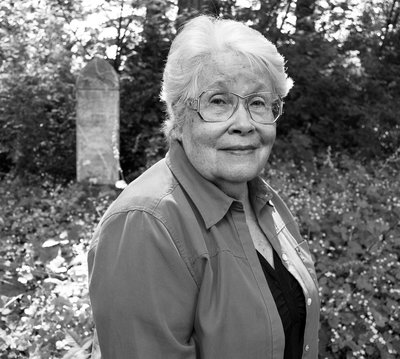
A third-generation Oregonian, Kay Holbo grew up in Grants Pass. She graduated Phi Beta Kappa from the UO in 1963, married history professor Paul Holbo and became a faculty wife with two kids. “I love to garden,” says Holbo, whose green thumb encompassed the pioneer Mulkey Cemetery, adjacent to the family home in West Eugene. “I saw in the old cemetery a beautiful landscape.”
In addition to her landscaping labor, she raised funds and organized volunteers for 25 years to realize that vision before turning it over to a newly formed nonprofit in 2006. In 1993, she was invited to join a planning committee organized by the city to take ownership of the Masonic Cemetery, Eugene’s oldest, the resting place of city founder Eugene Skinner and other prominent citizens.
“It was a city landmark, but a neighborhood disaster,” she says, a blackberry jungle on the hillside, a leaky roof and muddy floor in the Hope Abbey Mausoleum. “We rescued, repaired, restored, renovated and reinvented. We turned a disaster into a destination, an oasis of native plants.” It is also an active, operating cemetery with burial spaces for sale. Holbo served five years as president of the nonprofit Eugene Masonic Cemetery Association and 15 as vice president for fundraising before retiring in 2015.
The Kay Holbo Camas Field at the cemetery will be dedicated in her honor 2 pm Sunday, May 29, followed by a champagne party at Hope Abbey to celebrate EMCA’s 21st birthday. The Abbey will host Music to Die For, a summer series of acoustic concerts at 2 pm on the last Sunday of the month, June through October.